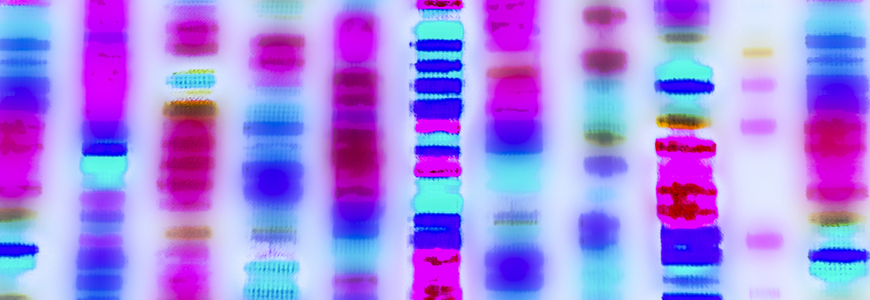As costs for genetic testing have decreased over the past decade, clinical and research interest has grown in testing more patients for Lynch syndrome to reduce their risk of developing cancer. Lynch syndrome, also known as hereditary nonpolyposis colorectal cancer, is one of the most common hereditary cancer syndromes and is associated with about 1% of all colon cancers, but it is not often considered when patients are diagnosed with colorectal cancer or other Lynch syndrome-associated cancers.
“In the last 10 to 20 years, there has been a greater recognition that many cancers are caused by genetic mutations that are inherited in families, but on the whole, we still need to do a better job of identifying patients who have these familial cancer syndromes due to the silent nature of the disease,” says Jatin Roper, MD, a Duke gastroenterologist and gastrointestinal cancer geneticist.
Patients referred to Duke’s Hereditary Cancer Clinic undergo evaluation by a genetic counselor and cancer geneticist, including a detailed review of family history. Those who meet clinical criteria are tested for inherited genetic mutations. As the cost of genetic testing has decreased, multigene testing (versus testing for single genes) has become more common. Patients with positive tests then return to the Hereditary Cancer Clinic for genetic counseling and discussion with a cancer geneticist.
Patients with a new diagnosis of Lynch syndrome or other gastrointestinal cancer syndromes are then referred to either Roper or Andew I. Wolf, MD, who specialize in inherited gastrointestinal cancer syndromes. In this clinic, Roper and Wolf help patients recently diagnosed with Lynch syndrome and other gastrointestinal cancer syndromes to reduce their risk for developing cancers through screening strategies.
“We make sure the patient understands the high risk for cancer that Lynch syndrome causes,” Roper explains, including a genetic predisposition to colon, endometrial, breast, skin, thyroid, and urologic cancers and, less commonly, small intestinal cancers. Lynch syndrome is associated with a 40% to 50% risk of developing colon cancer, with a higher lifetime risk of having multiple cancers simultaneously.
Working with a multidisciplinary team of genetic counselors, specialists, gynecologists, primary care doctors, surgeons, and pathologists, Roper and Wolf review a patient’s family history of cancer, detailed health history, environmental exposures, and genetic testing results, and then provides a personalized cancer risk assessment that may ultimately reveal the presence of a mutation in other members of the patient’s family. They also work in concert with gastrointestinal pathologists, geneticists, oncologists, and surgeons to develop a patient-specific plan that may include regular endoscopy, colonoscopy, imaging, surgery, and/or medications to reduce the risk of developing cancer.
“Once you diagnose the cancer syndrome in one person, you can often make the diagnosis in many family members,” Roper says, adding that greater awareness of Lynch syndrome is needed because “you would have to think of it in order to test for it. For example, a patient may have colon cancer, but it may appear as sporadic cancer without the underlying germline genetic mutation.”
Another effective way to identify patients with Lynch syndrome is to test all colorectal cancers for the disease. “We are now doing universal testing by staining tumors for different proteins on the tumor itself and picking up on cases that way,” Roper adds. “If there is loss of specific proteins that are involved in the repair of DNA defects, then it can be an indication of Lynch syndrome and a reason to refer a patient for genetic testing.”
In patients with Lynch syndrome, genetic testing shows germline mutation of the MLH1, MSH2, PMS2, or MSH6 genes, which indicates a loss of an important protein that’s involved in DNA repair. What’s more, the mutation appears in every cell at birth, which increases the risk of developing cancer in multiple areas of the body.
While Roper recommends that most patients with Lynch syndrome undergo a colonoscopy every year, he says there is still a risk of developing colon cancer that can be missed even with an intensive colonoscopy. “I often recommend that patients take an aspirin every day; ongoing studies are looking into the proper dosage, but it has been found to significantly reduce the risk of developing colon cancer by about 60%,” he adds.
